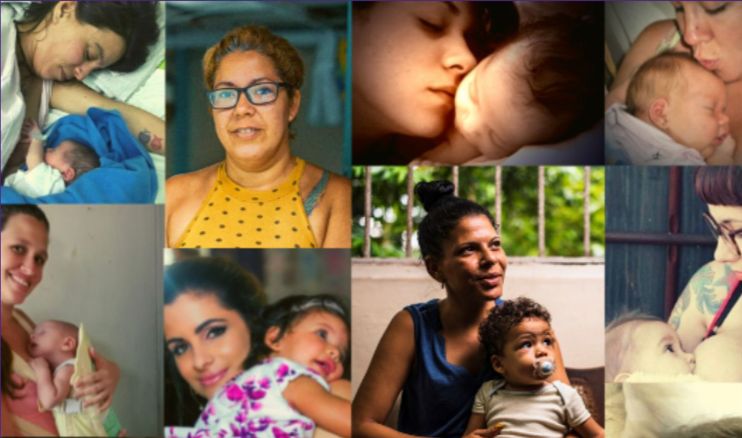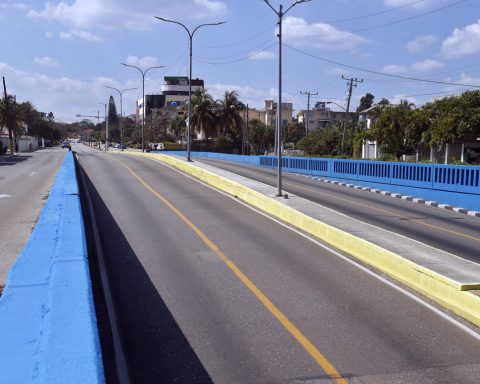MEXICO CITY.- “I would not want to remember those almost 30 hours that I was in induction, without strength, without trying food, alone, without any family member or my husband by my side”
Liubis Mabel Fiffi, pregnant and about to give birth, was lying in bed for more than a day without the health personnel heeding her calls.
“When I was in labor I felt like I had no strength and just said: ‘Almighty God help me and my baby, and let nothing happen to us.’ No matter how much you prepare yourself mentally, no matter how ‘very good you behave’ and ‘hold on’, it’s no use. The shouts they give you, the offensive words, the looks steal your spirits. Also, what about the lack of privacy, the lack of hygienic conditions (being given a clean sheet is a luxury). I believe that the vast majority, not to say all Cuban women, have suffered obstetric violence,” she wrote in Facebook Luibis after Broken Births was published this Thursday, microsite on obstetric violence in Cuba.
Their testimony is just one of hundredswhich Cuban women have shared on social networks in recent days.
Scenes where they describe how they were ignored, offended, ignored and treated as inert bodies that had no right not only to decide but even to know what happened to them and their babies are repeated in the texts of these mothers. Many of them, years later, still suffer from physical and emotional consequences. Fear of a new pregnancy and distrust of the health system are among the most frequent.
Lisandra Sosa, mother of a five-year-old baby, confesses that although having him was the best gift of her life, she never wants to return to a delivery room in Cuba. “It was a traumatic experience,” is how she sums it up.
“I entered the delivery room at one in the afternoon with contractions and a lot of pain. They put the catheter and bands on my legs and left me in the waiting room for three hours, suffering mistreatment from the nurses and doctors. My despair grew more and more. At three in the afternoon a doctor came in and when she looked at me she noticed that meconium was running down my legs, and there they began to run worried. The situation became chaotic when they realized that my baby had pooped.”
Lisandra was not given the anesthesia correctly, so she felt the pain of much of the cesarean section. Faced with a warning from one of the residents to the doctor that she had not numb the area, the specialist replied: ‘Can’t wait!’
“I am currently dealing with my son with a possible diagnosis of ADHD (Attention Deficit Hyperactivity Disorder) due to fetal distress. Painful, everything there is Painful”, said Lisandra on the Facebook wall of one of the authors of the investigation.
Broken Births It is a microsite with different journalistic products and formats inside (reports, data visualization, video, illustrations, comic strips, infographics, testimonials, an interactive map with testimonials written by the mothers themselves located according to the hospital where they gave birth, and a podcast in production).
The main finding of the project was to verify that obstetric violence is systemic in Cuban hospitals and health centers. To verify this phenomenon, the first massive survey was carried out in Cuba on the subject, in which almost 500 women participated. In the country there are no official statistics in this regard, nor is it usually addressed as a problem; therefore, the results of this research are the first and only available in the nation. This analysis made it possible to identify the main manifestations of obstetric violence in Cuba and its consequences in women and babies.
Less than a week from introduce the website, the authors have monitored more than a thousand comments raised on social networks. In addition, to date 210 women have reviewed the questionnaire “Tell us about your delivery”, available on the microsite. About half answered it to the end. Broken Births has awakened a kind of obstetrical #MeToo where Cuban mothers accuse the health system of violence. This project will continue to tell stories.
NOTE: If you gave birth in Cuba and would like to share your testimony with the Broken Births team, you can fill out this quiz. Or write to the following emails: [email protected] either [email protected]
Receive information from CubaNet on your cell phone through WhatsApp. Send us a message with the word “CUBA” on the phone +1 (786) 316-2072, You can also subscribe to our electronic newsletter by giving click here.


















